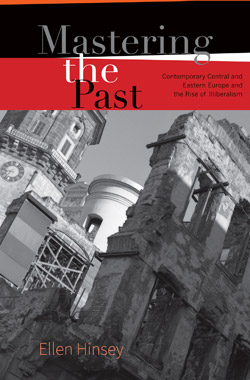By Mark Wegierski · Thursday, October 26, 2017 The following paper was presented at the conference “After the End of Revolution: Constitutional Order amid the Crisis of Democracy,” co-organized by the Telos-Paul Piccone Institute and the National Research University Higher School of Economics, September 1–2, 2017, Moscow. For additional details about the conference as well as other upcoming events, please visit the Telos-Paul Piccone Institute website.
This presentation compares two societies, which, although both claim to be “Western” as well as vibrant liberal democracies, are in many aspects quite different. Those societies have been shaped by their history and political culture to evolve in quite different directions. Nevertheless, they can both be seen as “post-revolutionary” societies.
Poland has had a very checkered history, from being a Great Power, to disappearing from the map of Europe, which has contributed to a strongly “erotic” sense of belonging among the Poles. Poland after 1989—the so-called Third Republic—has been in the difficult process of attempting a restoration of a more traditional Polish society, whose organic evolution and development had been so cruelly interrupted since 1939.
Continue reading →
By Telos Press · Wednesday, March 1, 2017 New from Telos Press: Ellen Hinsey’s Mastering the Past: Contemporary Central and Eastern Europe and the Rise of Illiberalism. Order your copy in our online store, and save 20% on the list price by using the coupon code BOOKS20 during the checkout process.
 Over the last decade Ellen Hinsey has traveled across Central and Eastern Europe researching a critical shift in the European political landscape: the rise of illiberalism. A quarter of a century after the changes of 1989—and as former Soviet sphere societies come to terms with their histories—the specters of populism, nationalism, extreme-right parties, and authoritarian rule have returned in force. Through a series of eyewitness reports, Mastering the Past offers an insider’s view of key political events, including the 2012 Russian elections, the Polish presidential plane crash in Smolensk, and Prime Minister Viktor Orbán’s vision for a new Hungary. Hinsey explores the darkening hour of European politics with an incisive mind and an eye for detail, recording the urgent danger that illiberalism represents for the new century. Over the last decade Ellen Hinsey has traveled across Central and Eastern Europe researching a critical shift in the European political landscape: the rise of illiberalism. A quarter of a century after the changes of 1989—and as former Soviet sphere societies come to terms with their histories—the specters of populism, nationalism, extreme-right parties, and authoritarian rule have returned in force. Through a series of eyewitness reports, Mastering the Past offers an insider’s view of key political events, including the 2012 Russian elections, the Polish presidential plane crash in Smolensk, and Prime Minister Viktor Orbán’s vision for a new Hungary. Hinsey explores the darkening hour of European politics with an incisive mind and an eye for detail, recording the urgent danger that illiberalism represents for the new century.
Continue reading →
By Telos Press · Monday, February 13, 2017 Mastering the Past:
Contemporary Central and Eastern Europe and the Rise of Illiberalism
by Ellen Hinsey
 Over the last decade Ellen Hinsey has traveled across Central and Eastern Europe researching a critical shift in the European political landscape: the rise of illiberalism. A quarter of a century after the changes of 1989—and as former Soviet sphere societies come to terms with their histories—the specters of populism, nationalism, extreme-right parties, and authoritarian rule have returned in force. Through a series of eyewitness reports, Mastering the Past offers an insider’s view of key political events, including the 2012 Russian elections, the Polish presidential plane crash in Smolensk, and Prime Minister Viktor Orbán’s vision for a new Hungary. Hinsey explores the darkening hour of European politics with an incisive mind and an eye for detail, recording the urgent danger that illiberalism represents for the new century. Over the last decade Ellen Hinsey has traveled across Central and Eastern Europe researching a critical shift in the European political landscape: the rise of illiberalism. A quarter of a century after the changes of 1989—and as former Soviet sphere societies come to terms with their histories—the specters of populism, nationalism, extreme-right parties, and authoritarian rule have returned in force. Through a series of eyewitness reports, Mastering the Past offers an insider’s view of key political events, including the 2012 Russian elections, the Polish presidential plane crash in Smolensk, and Prime Minister Viktor Orbán’s vision for a new Hungary. Hinsey explores the darkening hour of European politics with an incisive mind and an eye for detail, recording the urgent danger that illiberalism represents for the new century.
Continue reading →
By Katarzyna Bałżewska · Thursday, March 31, 2016 This article presents the connections between the Polish poet Czesław Miłosz and Thomas Mann’s The Magic Mountain. Miłosz’s fascination with the German novel, which has its roots in the 1930s, changed profoundly over the decades. Not only did the poet ponder on the immense intellectual value of The Magic Mountain, but he also turned to it eagerly as a form of literary “substance” and inspiration for his own works (The Seizure of Power, A Magic Mountain). The novel left deep marks on the author of The Captive Mind, because throughout his whole life he sought references to his own life in the fictitious events and characters from Mann’s story. The chosen fragments of texts and conversations with the Polish poet enable us to investigate the history of the extraordinary connection between Miłosz and this twentieth-century epic masterpiece, indicating at the same time the key moments of this “literary relationship.”
Continue reading →
|
|








